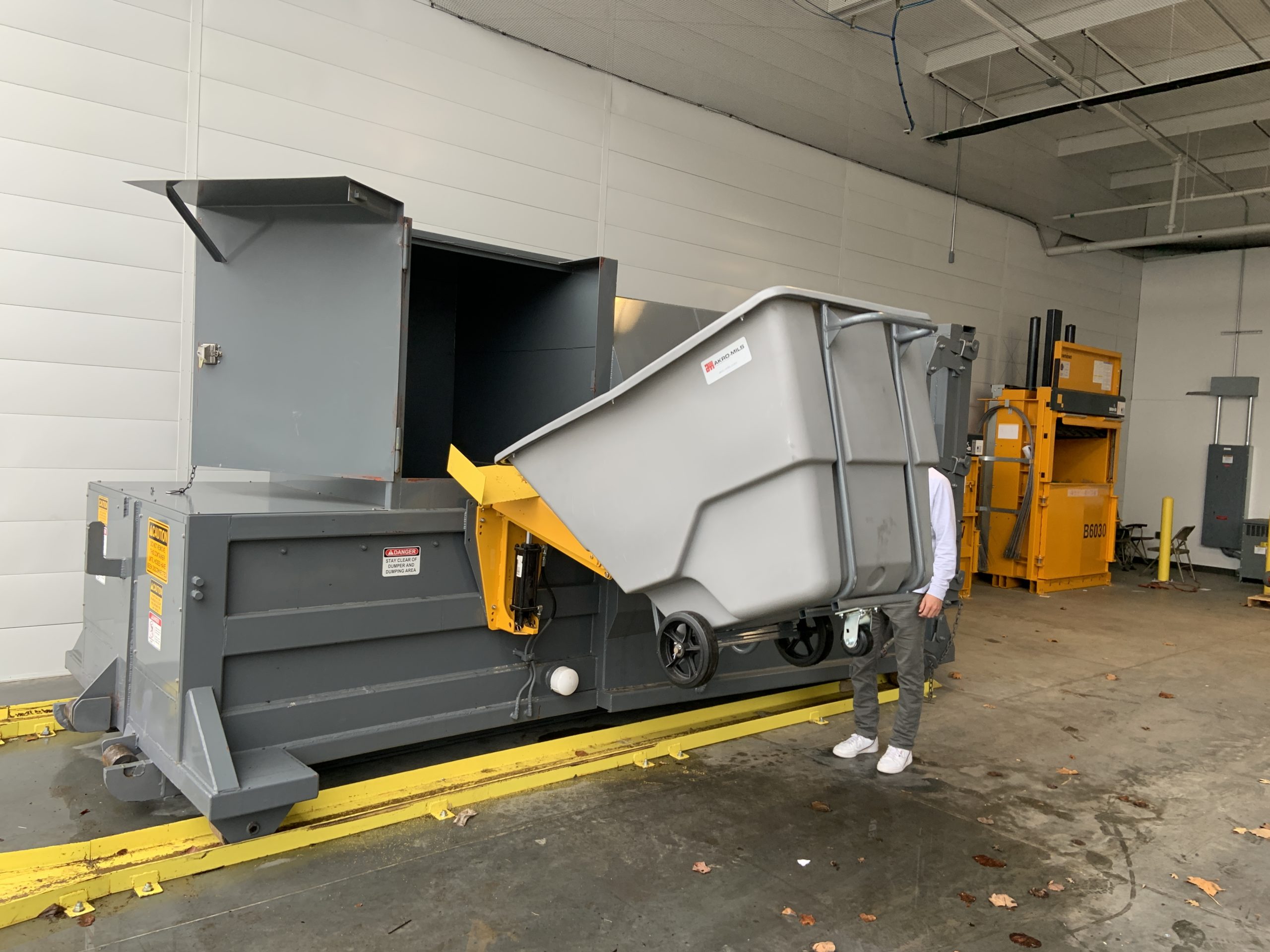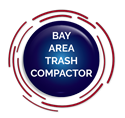
Who Needs a Commercial Trash Compactor?
When you’re in the process of figuring out a solid waste management solution for your business, you may come across a certain piece of equipment. This is a trash compactor. A commercial trash compactor is an ecologically friendly piece of the puzzle when it comes to managing your solid waste.
There are many kinds of trash compactors on the market – sizes, configurations, and designs to fit every need and space requirement. The good thing about trash compactors is that they are able to reduce the volume of the waste that is put into them. This saves space and allows your trash to take up less room in landfills. Because space for trash is finite, reducing the volume of your trash can help create extra room for other trash and allow for landfills to be in operation for a longer time. This reduces the number of new landfills that need to be created to accommodate new waste. In fact, if every business used a trash compactor as part of their solid waste management plan, the volume of waste in landfills would dramatically decrease. Of course, it can also save you money, too!
Luckily, more and more businesses are beginning to realize the importance of reducing waste volume and are utilizing trash compactors as part of their solid waste management solution.
Reducing Trash
A primary goal of any businesses’ solid waste management plan should be to reduce the amount of volume of the waste that they create. This not only preserves space in landfills, it also reduces costs. Since trash removal services are usually billed based on the number of pickups required, reducing the amount of waste created, cuts down on pickups and your monthly bill.
The first thing that we do at BATC when creating a solid waste management plan is to audit your trash. This means that we look at the trash that has been produced by your business and analyze it to see how much of it is actually trash. Likely, there is a lot that can be diverted out of the waste stream. Anything that can be recycled is marked so that, in the future, that material is deposited into a recycling bin or receptacle.
We like to use the example of plastic overwrap. Many times, shipping boxes and containers contain plastic overwrap. There are certain products that come in plastic overwrap every time. If your business is able to identify these items and products that always come in plastic overwrap, you can plan for their recycling. By putting a dedicated bin, for instance, near the place where the plastic wrapped products are opened, employees can make it part of their routine to deposit plastic overwrap in recycling bins.
Once these dedicated bins are filled, the plastic contained within can be baled. Once plastic overwrap is baled into blocks, it can be recycled. While one or two sheets of plastic wrap doesn’t seem like it takes up a lot of space, one hundred or one thousand sheets certainly do. By making it standard practice to divert materials like these, a cumulative effect is created. With multiple routines such as this one working at the same time, you will see a dramatic decrease in the amount of trash that you create.
The Issue of Compost
Compost is another issue. Any plant or food matter that usually is deposited into the waste stream can be marked for future diversion into a compost bin. Oftentimes, industrial compost can also accommodate certain paper products such as newspaper or small amounts of cardboard. This may vary depending on the compost service used.
Once a plan is put in place to divert compost and recycling from the waste stream, the next task is to deal with the true waste that is generated. One of the best ways to do this is with a trash compactor.
Trash Compactors
Trash compactors come in many different sizes and models. A trash compactor is great for large and small businesses, alike. Even in apartment complexes, trash compactors can reduce the volume of waste and are easy to use.
If you would like to reduce the volume of your waste and are wondering if your industry can benefit from the use of a trash compactor, the answer is probably yes. We have worked with a variety of industries across the board. We have supplied industrial trash compactors to academic institutions, clubs, spas, fast food restaurants, full service restaurants, hospitals, hotels, wineries, and more.
Success Story
For an example, let’s look at this success story from Amy’s Drive Thru in Corte Madera. Amy’s is the area’s leading vegetarian fast food restaurant. The ethos behind the company is very much centered around preserving the environment and being gentle on the earth. Because of this, they chose to look into options for reducing their waste and settled on getting a trash compactor. The trash compactor that they utilize is able to compact 20-25 full sized trash bags into a trash cube of a manageable size. The cube is placed into the 1.5 yard rear load bin of a local hauling company. This high-volume restaurant is able to limit the amount of pick ups to 3 times per week, through using an industrial trash compactor.
They have another solution for cardboard. They use a baler which crushes 150 boxes into a bale that’s 185-200 pounds. This allows staff members to eliminate time spent breaking down boxes and eliminates the need for additional recycling bins on the premises.
Due to the reduced number of pickups, Amy’s is able to save thousands of dollars per year on trash removal costs. Using the trash compactor as part of their solid waste management solution also allows for the savings of gasoline that would otherwise be used to transport the extra volume of waste.
Commercial Trash Compactor Help
For more information about the ways that a trash compactor may be able to benefit your business or corporation, contact us by calling (925) 465-5133. At Bay Area Trash Compactor, we have the experience and expertise to offer you a customized solution to save you both time and money while allowing you to be easier on the earth. We look forward to helping you find the best solid waste management solution for your business.
